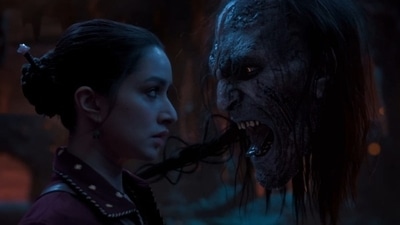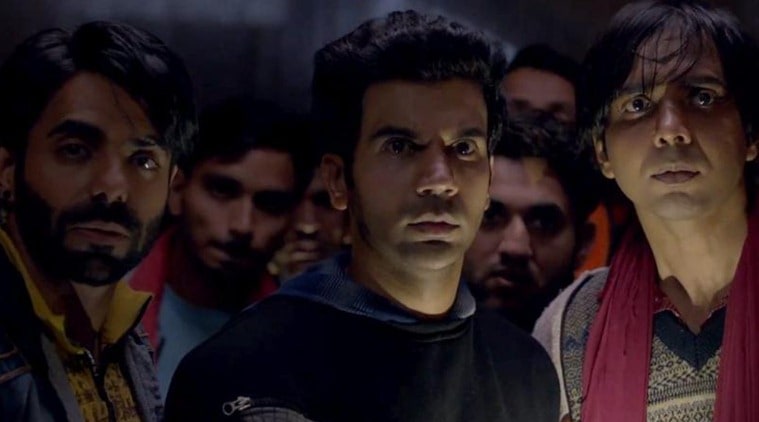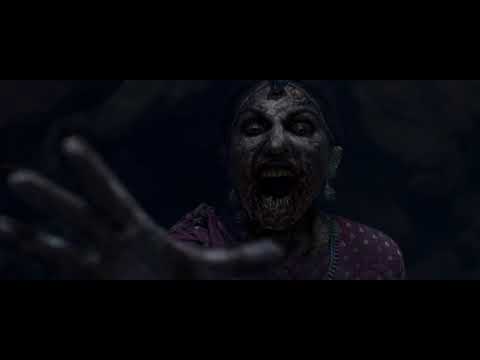[ad_1]
When Amar Kaushik’s directorial debut Stree released in 2018, it wasn’t the foundation stone of producer Dinesh Vijan’s horror comedy universe. It turned out to be that post its success, after instalments like Bhediya (2022) and Munjya (2024) were rolled out subsequently. The burden of consolidating and developing the universe the first part conceived weighs heavy on Stree 2, which released in cinemas last week and has been performing exceptionally well at the box office. It has high spectacle value, but the satirical appeal gets lost in the midst of all the stakes-building.

(Also Read – Stree 2 worldwide box office collection day 4: Shraddha Kapoor horror-comedy earns its highest yet, grosses ₹283 crore)
Satire via role reversal
In the first part, written by Raj & DK, the narrative blended the tropes of horror comedy with folklore. Inspired by the Nale Ba myth in Karnataka, it introduced the character of Stree, a gota patti saree-clad spirit, who haunts men roaming the streets of Chanderi after sunset. It was a smart role reversal on the practise of not letting women step out of their homes in the dark to ensure their safety. The subversion made sense since 2018 was also the year of Me Too. Raj & DK, Dinesh Vijan, and Amar Kaushik upended the genre of horrex (horror + sex) by introducing gender commentary to the horror genre.

Stree 2 is a satire closer to reality. When the medical fraternity among others across the country are protesting against the rape and murder of a trainee doctor in Kolkata, the film positions a villain who represents patriarchy and crimes against women. Sarkata (a giant ghost with a detachable head) has struck back in Chanderi to avenge the death of his family, beheaded by Stree, who in turn was first murdered by the man who turned out to be Sarkata. He was a ruler who used to enjoy a tawaif’s mehfil with his wife, and beheaded the lover of that tawaif (who later becomes Stree). In present day, Sarkata abducts women with a progressive mindset, who dare to think differently than the rest of Chanderi.
Not enough bite
The seeds of satire are certainly there in Stree 2. When Pankaj Tripathi’s character Rudra narrates a recap in the form of a folk song during the Pooja festival, he declares Rajkummar Rao’s character Vicky as the town’s saviour. Stree’s statue is erected in the heart of the city, but it’s the male saviour who keeps getting celebrated. At the start of the film, when Stree sees the new sign O Stree, raksha karna (protect us), as opposed to O Stree, kal aana (come tomorrow), she goes away. Could that be because she’s like the goddess whose idol is worshipped, but her human form remains caged by prejudice and patriarchy? Her association with motherhood is also telling – she’s often viewed in terms of her relationship with men, and not as a woman of her own.

But that thread is lost to the plot-building in the first half. It resurfaces in the second half when women of Chanderi ask Vicky the tailor to remove any scope of skin show from their clothes in order to escape the claws of Sarkata. They also ask him to summon back Stree, whom he had warded off, so that she could protect them from Sarkata. As women, they see her as their saviour, and Vicky as just a medium. Later, when Sarkata hypnotises the men of Chanderi, they banish women from the streets and decide to take the ritual of pooja into their own hands. A friend told me how she felt claustrophobic to see women locked inside as men took to the streets, given the current climate.
Sure, a film is a product and reflection of its own times. But it needs to have legs so that it can travel across time. Stree 2 succeeds as a spectacle – with the supernatural setting of the climax, a formidable CGI villain, the return of the titular avenging angel, and the larger vision of a horror multiverse, including a creature cameo and setting the stage for the next villain, played by a superstar. But in the midst of all that stakes-building, Stree 2 somewhere overlooks what its first part dared to be – a biting satire. Blame it on the high stakes or the exclusion of Raj & DK (they’re building their own spy universe somewhere else), but Stree 2 doesn’t milk its satirical potential as incisively as it could have. It just hastily ties loose ends in the end to pretend like it had been focusing on that all along.
[ad_2]
Source link